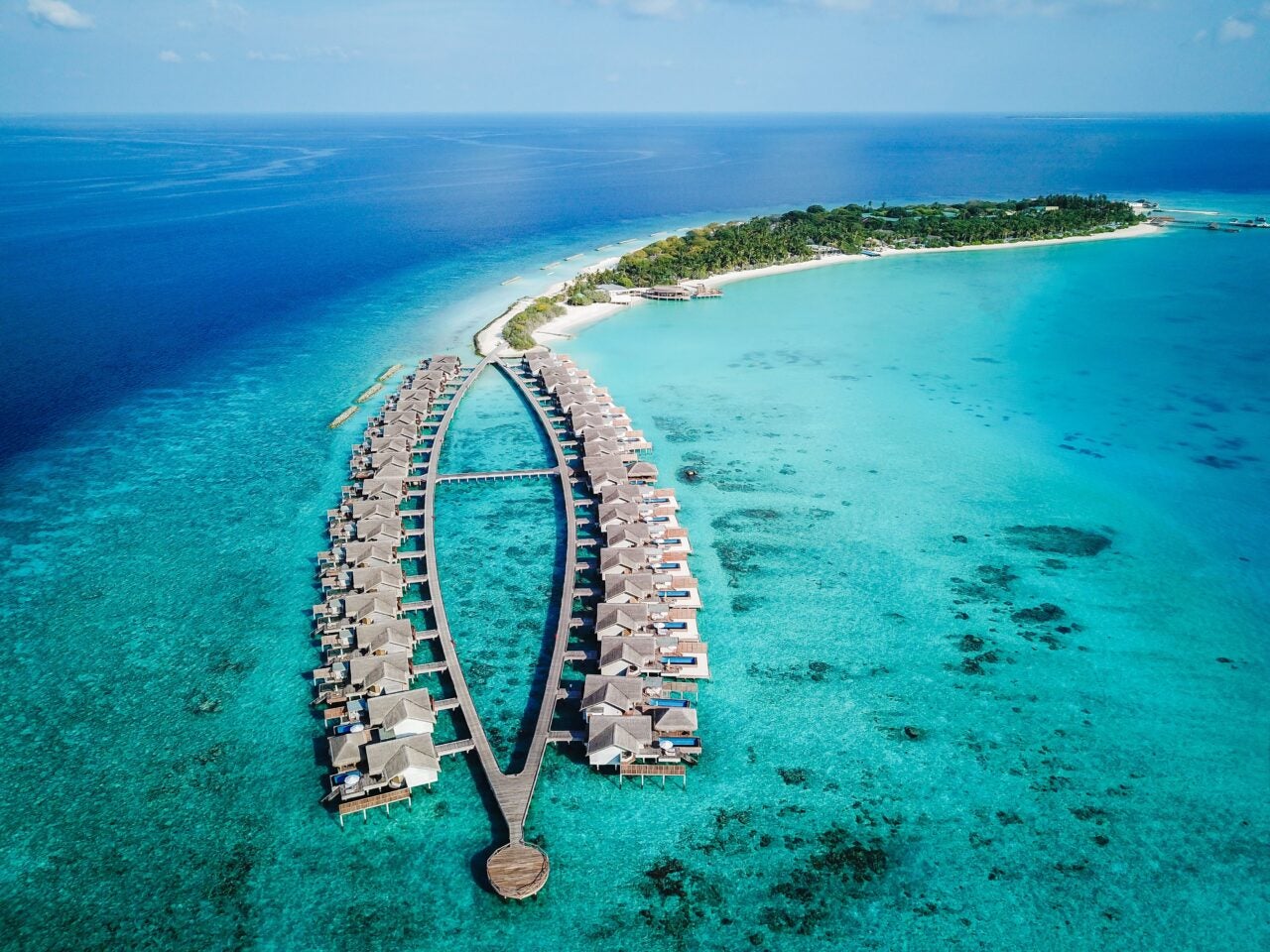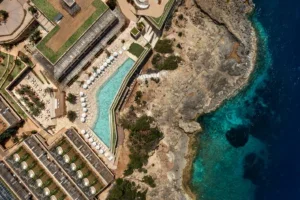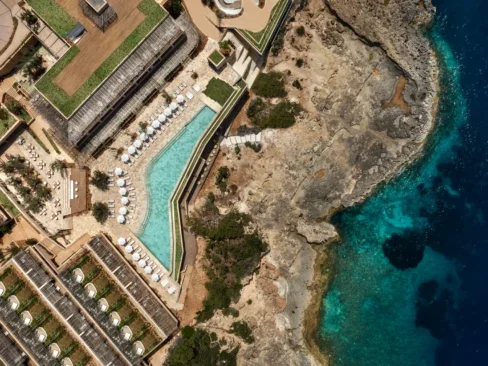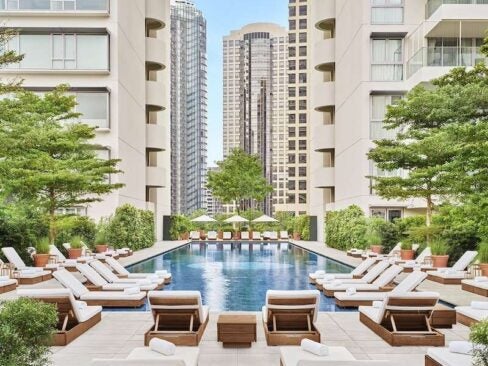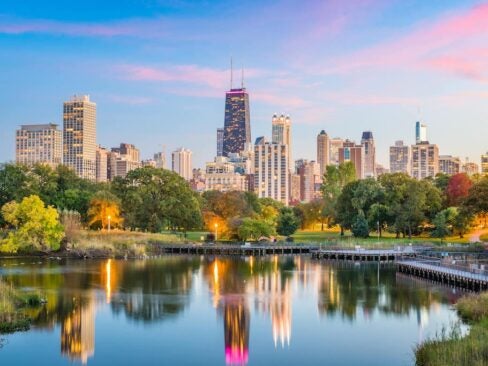Nestled within the Shaviyani Atoll lies the Fairmont Maldives Sirru Fen Fushi. The ‘secret water island’ (as it is known by locals) boasts lush mangroves, endless white sandy shores, and, stretching as far as the eye can see, breathtaking views of the Indian Ocean. In a sign of its commitment to protecting and preserving this pristine natural environment, the luxury resort has unveiled its latest ambitious environmental project: the Sustainability Lab.
The goal? To recycle all plastic waste generated by the resort and local communities and, going one step further, to begin removing plastic from the surrounding ocean. With experts predicting that plastic particles in the sea could outnumber fish by 2050, taking action has never been so important – especially as tourism continues to grow at the idyllic archipelago.
“With the launch of the Sustainability Lab, we aspire to be as close to zero waste as we can, using current and future technology improvements to allow us to find better ways to reduce, reuse, recycle and upcycle our waste, whilst educating the next generation of eco-conscious Maldivians and travelers about the importance of recycling, sustainable living and ocean conservation,” explains Andrew Steele, general manager of Fairmont Maldives.
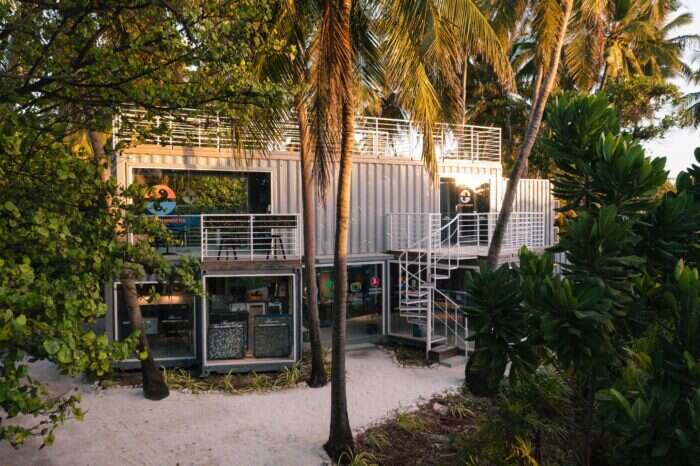
Long term, the Sustainability Lab will be turned into a recycling center for the surrounding islands / ©Fairmont Hotels and Resorts
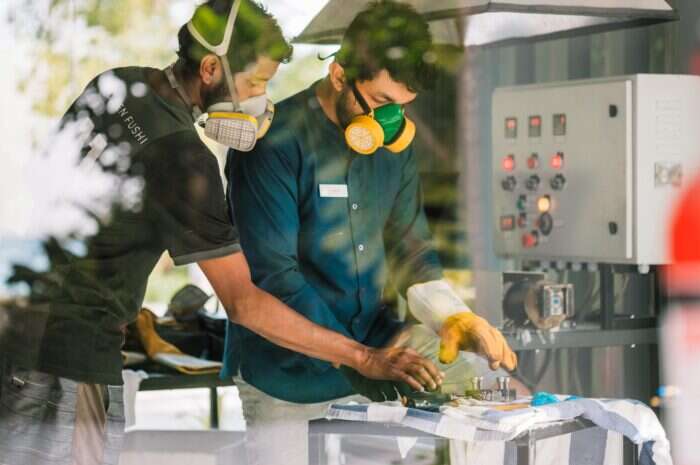
Specialized machinery is used to repurpose the waste, transforming it into an array of products / ©Fairmont Hotels and Resorts
[See also: The Most Luxurious Eco-Friendly Hotels]
So how will this work in practice? To start with, plastic is collected from the beach, ocean and reef and taken to the lab. Here, specialized machinery is used to repurpose the waste by shredding, melting and shaping it into an array of products including custom furniture, building bricks, stationary for local schools and bespoke souvenirs such as luggage tags in the shape of turtles and sharks.
Long term, Fairmont Maldives is hoping to make a lasting impact on the local community by turning the Sustainability Lab into a recycling center that can be used by the surrounding islands.
But the hard work doesn’t stop there. The luxury resort has also partnered with seven local schools in Shaviyani Atoll as part of the Fairmont Award Scheme, running a series of workshops to educate students on topics including ocean conservation, recycling and marine biodiversity, and giving them the chance to visit the Sustainability Lab to see the project in action.
“To be able to launch this project with our Fairmont Award Scheme for schools and change local pupils’ relationship with waste, means we’re really going to be able to make a difference in our atoll,” says Steele. “It’s not about greenwashing, it’s more about how we’re going to change mindsets, so we can ultimately create the next generation of eco-warriors.”
In a similar vein, guests are able to get involved, collecting plastic waste and making their own products at the Sustainability Lab, as well as taking part in a range of activities and programs designed to give them a unique insight into the crucial conservation work being undertaken at the resort.
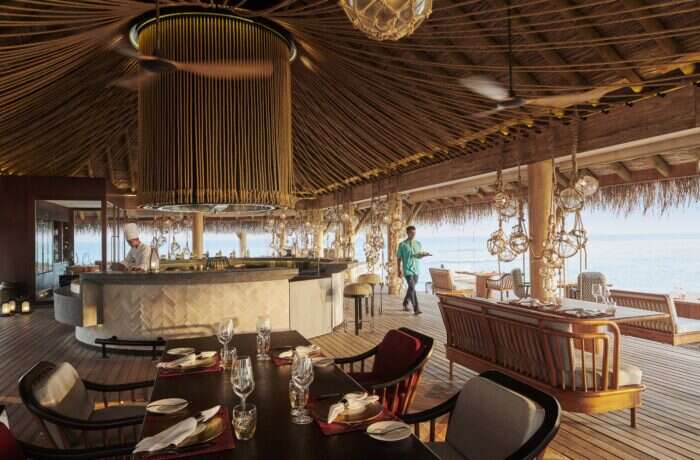
Local and seasonal produce is used in the resort’s restaurant / ©Fairmont Hotels and Resorts
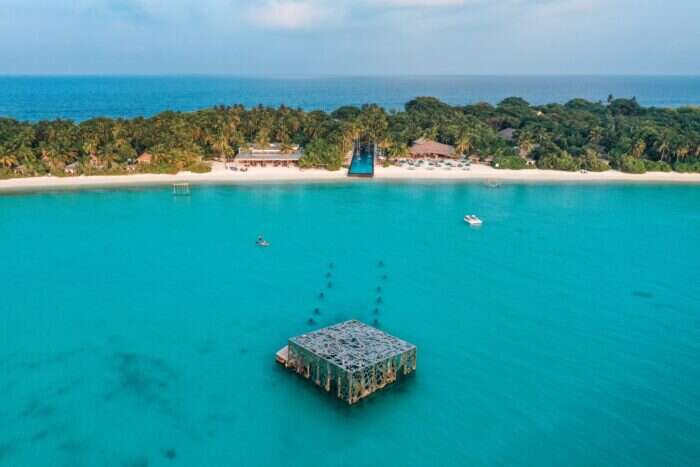
The five-meter-tall installation, Coralarium, by Jason deCaires Taylor / ©Fairmont Hotels and Resorts
[See also: Earth Day: The Luxury Hotels and Resorts Going Green]
Ultimately, says Steele, the goal is to encourage guests to “take their learnings from the lab home and spark sustainable change in their local communities. That’s the inspiration behind it all, the local spark that we want to start.”
Of course, the luxury resort’s green efforts extend far beyond the Sustainability Lab. The new project is just the latest in a range of initiatives that form Fairmont Maldives’ overarching Save the Ocean program.
Other work currently underway includes a partnership with NGO, the Oliver Ridley Project, to protect the Maldivian Green and Hawksbill sea turtle populations and their habitats. As with the Sustainability Lab, guests are encouraged to get involved during their stay and assist the marine biologists in releasing baby turtles on the east coast of the resort, protecting their nests and rescuing turtles entangled in discarded fishing nets.
The resort’s comprehensive program also includes a striking sculpture created by renowned local artist and environmentalist, Jason deCaires Taylor. Located in the shallow waters of the lagoon (visible from the beach), the 16.4-ft installation is constructed out of more than 500 ceramic starfish designed to attract a variety of fish and crustaceans to live and thrive. Today, it is home to thousands of schooling fish, hard corals and sponges.
As for the resort itself, significant work has been undertaken to minimize the property’s impact on the environment from employing solar panels to save energy to reducing water consumption and using local and seasonal produce in the restaurant. These efforts haven’t gone unnoticed with Fairmont Maldives becoming a Green Globe certified organization in 2021.
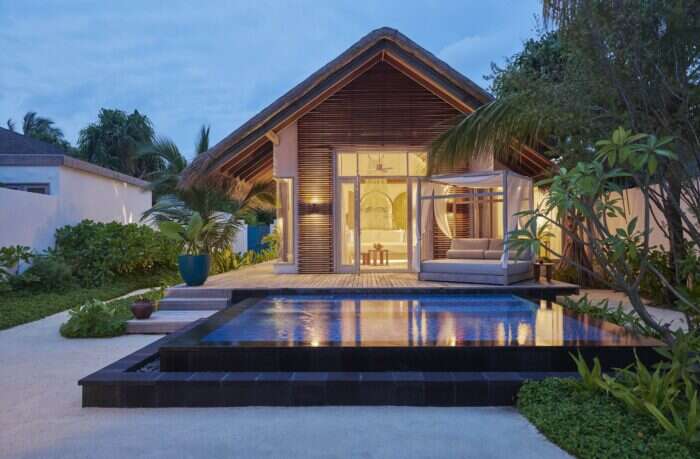
The resort employs solar panels to minimize its environmental impact / ©Fairmont Hotels and Resorts
[See also: The Most Sustainable Suites in Elite Traveler’s Top 100]





